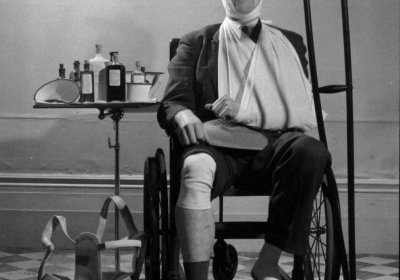Itching to Serve: Entomology, Infection, and the Experimental Citizen in Wartime Britain, 1939-1945
New Histories of Health: NHS 70 series
During the Second World War, British medical researchers warned of an imminent invasion of the national body by an army of lice, mites, and other unwanted parasites. With the pandemics of the Great War still fresh in the minds of many public health officials, some predicted that vector-borne diseases such as typhus, scabies, and relapsing fever would “spread like wildfire” in the country’s overcrowded air-raid shelters and bomb-damaged suburban homes. Responding to these concerns, the Medical Research Council sponsored a national network of investigations into the transmission and treatment of these conditions, with the Department of Entomology at the London School of Hygiene and Tropical Medicine at its centre. To conduct their experiments, researchers desperately searched university departments, local communities, and street corners for volunteers willing to serve as both breeding grounds for parasitic populations and test subjects for harsh chemical prophylactics.
This paper will examine the varied experiences of the experimental subjects who responded to this call: a diverse cohort of laboratory technicians, conscientious objectors, unemployed dock workers, colonial labourers, and homeless people. How did the differing statuses of these individuals – some seen as heroic citizens, others as maligned outsiders – influence perceptions of their experimental labours? How did subjects’ changing awareness of their own bodies – newly experienced as itchy, sore, and teeming with parasitic life – impact their understandings of what it meant to be a citizen in wartime Britain? Using archival materials from the Medical Research Council and the London School of Hygiene and Tropical Medicine, this paper will argue that these wartime experiments reveal hidden divides in the social, political, and emotional landscape of the British Home Front.
Contact
